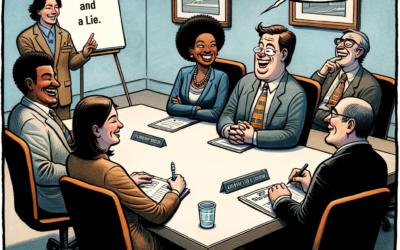Do you lead your team toward activities or actions?
You might think “activities” and “actions” are more-or-less synonyms. When you begin to understand the defining difference, you will never look at the words in the same way again.
“Activities” are those everyday behaviors that you do, the mundane, no-change, no-gap-closing initiatives. Activities are like merry-go-rounds; you’re constantly moving, but making no forward progress.
“Actions” call for dramatic change in mind, expression, or body; they call for movement toward a destination. They require closing the gap between where you stand (e.g., the base of a mountain) and where you imagine wanting to be: the PEAK!
Activities lead to mold and decay. Actions lead to new and better results. So…start asking Action Questions!
Action questions will dramatically change your leadership outcomes. They will enable you to more effectively close the gap between your imagined future (vision) and your current reality. Action questions are hard questions. They really lend themselves to some good Ask Kicking!
Action Questions have a future orientation to them. These questions inspire the listener to move to action and to generate experience, rather than employ past experience or knowledge. If you want your team to engage in the same activities, you’d teach teamwork in a seminar room. If you want action, you’d bringing your team to a high ropes course, so they can challenge their fears together and support each other as they progress through the gauntlet of risk together.
Using questions you already know the answer to puts your organization into the classroom and pulls them from the risk, excitement, and accountability of a real-world experience. Your coworkers behave like students, trying to find your answers, not their own. As a result, it’s highly unlikely that they will engage in much new learning. They will keep repeating their activities, rather than try new actions.
Action Questions motivate and stir movement deeply in others. Here are some examples:
What will allow you to move forward on this?
In light of this, what do you intend on doing?
What is your timeline for accomplishing this project?
What decision have you made?
How are you going to close the gap?
What might prevent you from succeeding?
What three steps are you going to accomplish this week?
What will you do if X happens?
What if it does not work out that way?
Notice that all of these questions are future-oriented and forward-moving. They often inspire the responder to consider the unknown, not just the known. They don’t tempt your team members to find YOUR answer. Your team members are smart enough to see through those questions. They’re not students anymore. They need and want real responsibilities and accountability. It’s what engages them.
If you want your questions answered with ACTION, start asking Action Questions!




